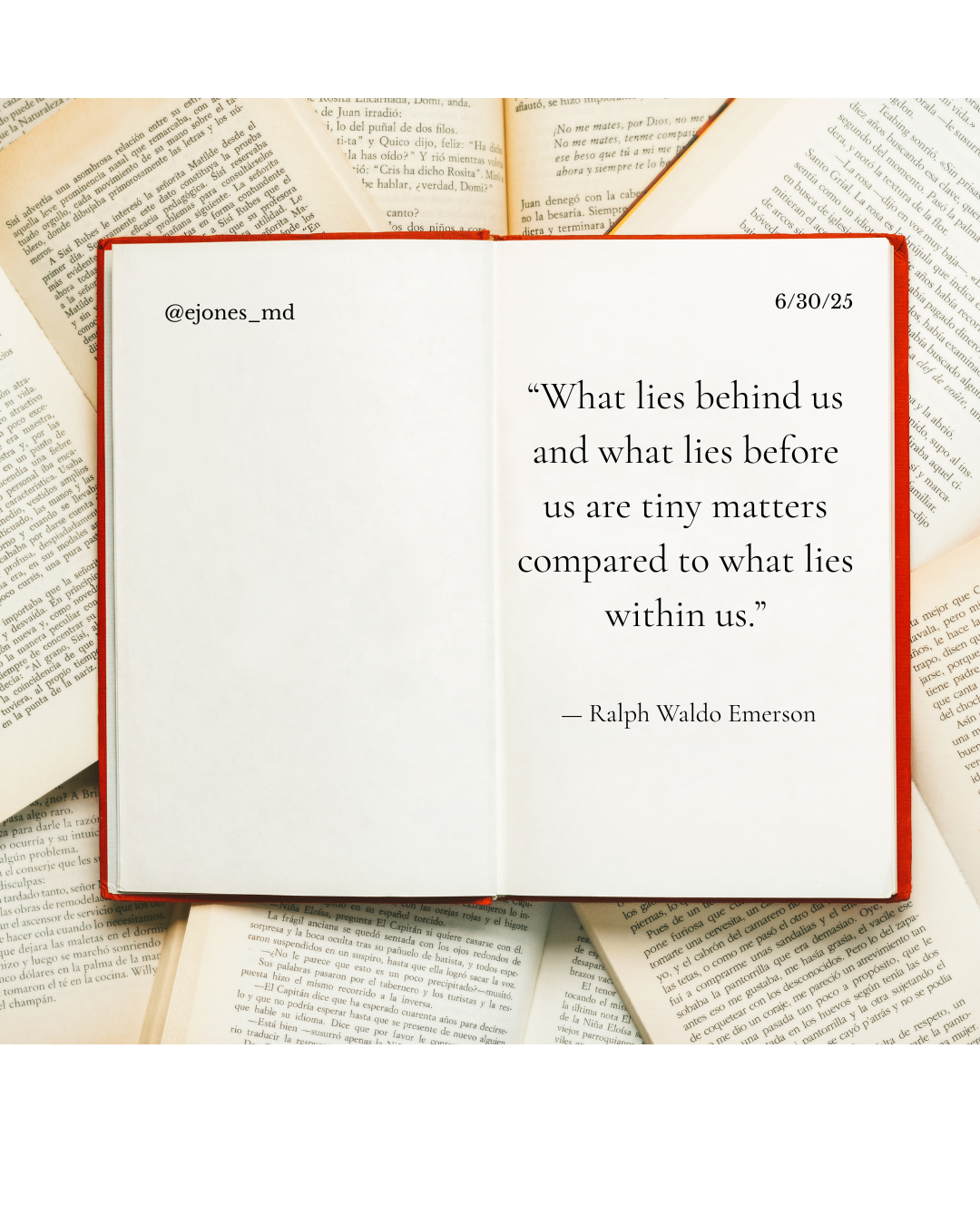Lead With Love
Jun 30, 2025
Leading with Humanity When the Culture Doesn’t Reward It
If you’ve worked in healthcare long enough, you’ve felt this tension: medical culture doesn’t always reward your humanity.
We learn it early. Like when you take an extra five minutes to sit with a grieving family and someone remarks that you’re “falling behind.” Or when you cry after a patient dies and immediately wonder if you look unprofessional. I feel it when I hear my colleagues talk about patients like puzzles to be solved—never people to connect with.
This is the quiet grief of medical professionals: we are called to be healers in a culture that often rewards detachment.
When I started out, I thought being good at my job meant never letting it get to me. I believed the story that caring too much would break me. So I did what most of us do—I learned to stay efficient, objective, invulnerable. I learned how to perform empathy to play the part of the caring doctor while internally making every effort to wall myself off from my patients’ experiences. And for a while, that almost worked.
Until it didn’t.
The Cost of Disconnection
Detachment didn’t protect me from pain. It just disconnected me from purpose.
It wasn’t until I let my humanity lead that I found a way to stay in this work without losing myself. And it wasn’t until I started naming what felt wrong that I realized how much of our system is built on pretense—on pretending we don’t see the gaps, pretending we don’t feel the weight, pretending it’s all fine.
Fine is just a polite word for ‘not okay’
Leaning into my humanity often means doing uncomfortable things. But I’ve learned that choosing the “hard thing” ultimately brings more ease. The pain of avoidance, the guilt of staying silent, and the gradual numbing of all areas of life—including the good parts—are too high a price to pay for the momentary convenience of not rocking the boat.

Not All Resistance Is Visible
Saying hard things and challenging cultural norms rarely results in immediate change. When I speak up in a meeting, most of the time it goes unacknowledged or unappreciated. Culture doesn’t shift in a tidy 60-minute plot arc like it does on TV. It takes persistence, discomfort, and the willingness to keep telling the truth even when it feels like no one is listening
I’ve been the one to say, out loud, that a care plan felt more about protecting the institution from liability than honoring what a patient actually wanted. I’ve had to find the words to explain to management why I was “making this harder,” when really, I was just advocating for the family.
I’ve also poured my heart and soul into developing a proposal for a new service line that would improve care and patient satisfaction. I did the stakeholder work, vetted the metrics, and made sure it was cost neutral. I brought every skill I had to the table. And then an administrator simply said: “No. We aren’t doing this.” No explanation. No conversation. Just no.
That stings. It’s a real zingy-wingy.
Honoring my human side meant letting it hurt for a moment. I was angry. Frustrated. I did a lot of work and they just tossed it aside—along with the benefit to patients that would never materialize.
Then, I reclaimed my purpose. I reminded myself: I can’t control the organization’s priorities. I did what I could. I fought my hardest. And since I wasn’t needed in that room anymore, I decided to take a nap. Or go to Pilates. Not in a petty “I’m taking my ball and going home” way, but as an intentional guidance of energy.
That is humanity too.
Why the Culture Pushes Back
Healthcare runs on scarcity—scarcity of time, scarcity of resources, scarcity of acknowledgment. In that environment, humanity can look like a liability. It can feel inefficient, inconvenient, or risky to be the one who slows down, who asks the hard question, who refuses to pretend everything is fine.
You might get labeled “too emotional,” “too slow,” “too sensitive.” You might feel like you’re swimming upstream while everyone else floats along with the current.
But here’s the truth: the people who change healthcare are almost always the ones willing to do exactly that.
What Leading with Humanity Looks Like
Leading with humanity doesn’t mean you don’t have boundaries. It doesn’t mean you carry every burden home or sacrifice yourself on the altar of compassion.
It means you refuse to flatten people into problems. You remember that the messy, inconvenient parts of care are often the most meaningful.
It means:
- Telling the truth, even when it’s uncomfortable.
- Making space for emotions—yours and theirs.
- Staying curious about what people value, even if it slows you down.
- Laughing when it helps, crying when it matters.
- Allowing yourself to be moved—and also letting yourself step back when you’ve given enough.
For me it means choosing presence over pretense.
I think about the time I was rounding on a patient who was dying. The team was anxious to move on—we were already behind schedule. But her mother was sitting there, holding her hand, her face crumpled with grief. I felt that old instinct to keep moving, to stay “on time.” and conform to my MD role of just managing the meds. But something in me said no.
So I stayed. I sat down. I didn’t say anything for a long moment. And when I finally spoke, it wasn’t to summarize labs or list interventions. It was just to say, You loved her so well.
No one gave me productivity points for that. But it was the right thing to do.

Leading Anyway
If you’re reading this and thinking, I’m tired of pretending, you’re not alone.
You don’t have to shut off your heart to be effective. You don’t have to measure your worth in RVUs or patient throughput. You don’t have to treat your humanity like an inconvenience you keep locked outside the exam room.
You can lead differently. Even when the culture doesn’t reward it. Especially when the culture doesn’t reward it.
What does it take to lead this way?
It starts with a strong foundation of self-knowledge and self-management. A structured framework for making decisions based on your values. The grounded confidence to stand by those decisions, even when they’re unpopular. The support of a community that lifts you up instead of tearing you down. And an unwavering commitment to ongoing growth and learning.
This is not easy—but it is important, and it is worth it.
Because every time you choose presence over performance, every time you allow yourself to be real, you leave behind a trail. You remind others that there is another way to do this work—a way that is honest, brave, and whole.
✨ Next Week:
If you’re tired of pretending everything is fine, you’re not alone—and you don’t have to stay stuck. In my next post, I’ll share practical tools, journal prompts, and micro-practices to help you reconnect with your own humanity, even in the busiest, most demanding roles. Because real leadership starts when you allow yourself to be fully human.
💌 Want more?
Subscribe to The Recharge Letter
My weekly personal letter on burnout recovery, visionary leadership, and creating a sustainable career in healthcare.
We hate SPAM. We will never sell your information, for any reason.

